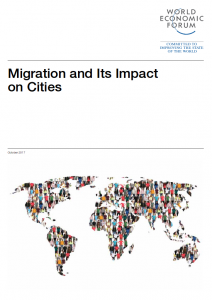Vice | 18.10.2017
By Sam Metz
Throughout neighboring Algeria, police are indiscriminately rounding up West African migrants, loading them onto buses, and transporting them thousands of miles to the country’s southern border, where they are deported to Niger. These roundups have increased in frequency and force since late August, taking place in the dead of night and during morning commutes in broad daylight. At least 500 migrants have been captured in October alone, according to a joint press release issued Tuesday by the International Federation for Human Rights and the Collectif Loujna-Tounkaranké.
The sudden surge in migrant roundups has alarmed human rights monitors throughout the region, which warn Algeria that it may be violating United Nations and African Union conventions on migrant protections. In a letter to President Abdelaziz Bouteflika, a cohort of African organizations condemned the summary deportations and the atmosphere of fear they’ve sowed in Algeria, writing, “Up until now, nobody understands the reasons behind this outbreak of psychological — and sometimes even physical — violence toward sub-Saharan Africans.”

